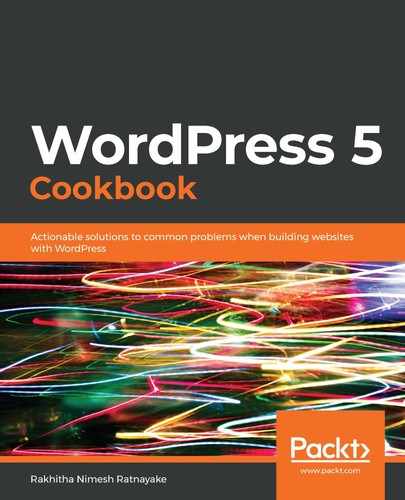In this recipe, we loaded the list of all the normal posts in the site. This is a primary implementation of a post list template. In the real world, these templates are used for displaying custom post types or filtered sets of posts instead of all posts. Let's take a look at the scenarios where we can change the query to make the template much more flexible:
- Displaying a custom post in a list template: We can modify the query to display a list of entries from a custom post type such as WooCommerce products by changingpost_type:
$post_list = new WP_Query(array('post_type'=>'product', 'post_status'=>'publish', 'posts_per_page'=>-1));
- Displaying posts from a specific category: We can modify the query to display posts only from the category specified in the category_name parameter:
$post_list = new WP_Query(array('post_type'=>'post', 'post_status'=>'publish', 'category_name' => 'books', 'posts_per_page'=>-1));
- Displaying posts with more than x number of comments: We can modify the query to display a list of posts that have more than 10 comments:
$post_list = new WP_Query(array('post_type'=>'post', 'post_status'=>'publish', 'comment_count' => array( 'value' => 10, 'compare' => '>=', ), 'posts_per_page'=>-1));
The WP_Query class provides a large number of such query parameters, so the possibilities are endless. You can view all the available query parameters at https://developer.wordpress.org/reference/classes/wp_query/.
